
California’s experience provides a rare opportunity to learn from a collaborative public process involving private interests and science-intensive decisions. Determined to do just that, Steven Yaffee, a renowned expert on negotiation and collaborative decision making, spent hundreds of hours researching the MLPA process in an effort to understand how California succeeded where other efforts have failed. The result is Beyond Polarization, a highly readable insider’s perspective on complicated decision-making processes and the strategic choices necessary for success. The book follows the initiative process region by region, each with its unique stakeholders and geographic concerns. These lessons can be applied to similar collaborative processes across the country and world.
Beyond Polarization presents an optimistic message about the public policy process in a time of civic division. It offers reassurance that, by using proven decision-making processes, policymakers, scientists, and local citizens can successfully collaborate to manage and protect natural resources we all have a stake in.
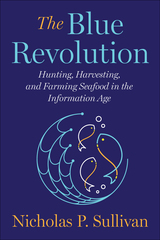
Nicholas P. Sullivan presents this new way of thinking about fish, food, and oceans by profiling the people and policies transforming an aging industry into one that is “post-industrial”—fueled by “sea-foodies” and locavores interested in sustainable, traceable, quality seafood. Catch quotas can work when local fishers feel they have a stake in the outcome; shellfish farming requires zero inputs and restores nearshore ecosystems; new markets are developing for kelp products, as well as unloved and “underutilized” fish species. Sullivan shows how the practices of thirty years ago that perpetuated an overfishing crisis are rapidly changing. In the book’s final chapters, Sullivan discusses the global challenges to preserving healthy oceans, including conservation mechanisms, the impact of climate change, and unregulated and criminal fishing in international waters.
In a fast-growing world where more people are eating more fish than ever before, The Blue Revolution brings encouraging news for conservationists and seafood lovers about the transformation of an industry historically averse to change, and it presents fresh inspiration for entrepreneurs and investors eager for new opportunities in a blue-green economy.
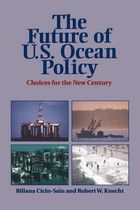
The United States is about to embark on the most thorough reconsideration of its ocean policy in more than three decades. With 1998 designated as the International Year of the Ocean by the United Nations, and with both the executive branch and the Congress currently working toward developing new approaches to formulating and implementing ocean policy, a comprehensive overview of key issues and concerns is essential.
The Future of U.S. Ocean Policy provides such an overview, with an in-depth analysis of the evolution of U.S. ocean policy and a timely discussion of the most important ocean and coastal issues facing the nation. The book assesses the current status of ocean policy, examines national and international trends, and considers choices for policymakers in the 21st century. Following an introductory chapter that reviews national ocean policy and the process by which it is made, the authors:
- review the history of development of U.S. ocean and coastal policy
- examine the major ocean laws enacted in the 1970s and review and assess their record of implementation
- examine factors that will affect U.S. ocean policy in the coming decade
- discuss the need to make policy more coherent, and to develop institutional mechanisms that can foster more effective guidance and oversight
- present a set of policy options for improving U.S. ocean policy
The Future of U.S. Ocean Policy is the only recent book that focuses on national ocean policy in its entirety, and will play an important role in upcoming debates concerning the future direction of policy initiatives. Agency personnel, members and staff of nongovernmental organizations, industry groups, Congressional staffers, state and local government officials, academics, and concerned citizens will find the book an invaluable guide, as will students and faculty in courses in marine and coastal management and in environmental management.
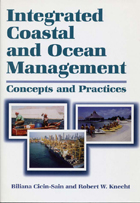
Biliana Cicin-Sain and Robert W. Knecht are co-directors of the Center for the Study of Marine Policy at the University of Delaware in Newark, Delaware and co-authors of The Future of U.S. Ocean Policy (Island Press, 1998).
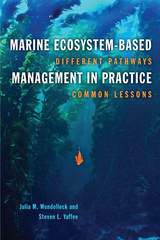
Marine Ecosystem-Based Management in Practice is the first practical guide for the marine conservation realm. In a unique collection of case studies, the authors showcase successful collaborative approaches to ecosystem-based management. The authors introduce the basic concepts of ecosystem-based management and five different pathways for making progress from community to multinational levels. They spotlight the characteristics that are evident in all successful cases —the governance structures and social motivations that make it work. Case analyses ranging from the Gulf of Maine to the Channel Islands in Southern California comprise the bulk of the book, augmented by text boxes showcasing examples of guiding documents important to the process. They devote several ending chapters to discussion of the interpersonal relationships critical to successful implementation of marine ecosystem-based management. The book concludes with a discussion of the implications for policy and on-the-ground practice.
This book offers a hopeful message to policy makers, managers, practitioners, and students who will find this an indispensable guide to field-tested, replicable marine conservation management practices that work.
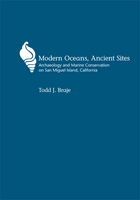
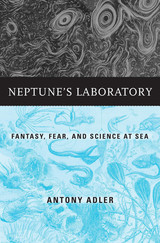
An eyewitness to profound change affecting marine environments on the Newfoundland coast, Antony Adler argues that the history of our relationship with the ocean lies as much in what we imagine as in what we discover.
We have long been fascinated with the oceans, seeking “to pierce the profundity” of their depths. In studying the history of marine science, we also learn about ourselves. Neptune’s Laboratory explores the ways in which scientists, politicians, and the public have invoked ocean environments in imagining the fate of humanity and of the planet—conjuring ideal-world fantasies alongside fears of our species’ weakness and ultimate demise.
Oceans gained new prominence in the public imagination in the early nineteenth century as scientists plumbed the depths and marine fisheries were industrialized. Concerns that fish stocks could be exhausted soon emerged. In Europe these fears gave rise to internationalist aspirations, as scientists sought to conduct research on an oceanwide scale and nations worked together to protect their fisheries. The internationalist program for marine research waned during World War I, only to be revived in the interwar period and again in the 1960s. During the Cold War, oceans were variously recast as battlefields, post-apocalyptic living spaces, and utopian frontiers.
The ocean today has become a site of continuous observation and experiment, as probes ride the ocean currents and autonomous and remotely operated vehicles peer into the abyss. Embracing our fears, fantasies, and scientific investigations, Antony Adler tells the story of our relationship with the seas.
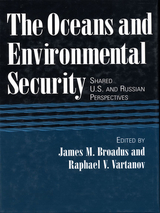
The concept of environmental security, drawing on the widely understood notion of international strategic interdependence (in facing, for example, threats of nuclear war or economic collapse) is gaining currency as a way of thinking about international environmental management.
In 1989, the Institute for World Economy and International Relations of the Russian Academy of Sciences and the Marine Policy Center of Woods Hole Oceanographic Institution instituted a joint project to examine environmental security as it applies to the world's oceans. The Oceans and Environmental Security is a unified expression of their findings.
The oceans, as global commons, are of central importance to issues of international environmental security. Critical problems are those that are likely to destabilize normal relations between nations and provoke international countermeasures. As such, the book focuses on seven specific concerns:
- land-based marine pollution
- North Pacific fisheries depletion
- hazardous materials transport
- nuclear contamination
- the Arctic Ocean
- the Southern Ocean and Antarctica
- the Law of the Sea
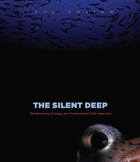
The Silent Deep tells the story of the exploration and discovery of the deep sea, the ecology of its diverse environments, and the impact of humans, highlighting the importance of global stewardship in keeping this delicate ecosystem alive and well. Written by world renowned deep-sea ecologist Tony Koslow, this book is a comprehensive and authoritative overview of the state of the deep sea today, accessible to anyone interested in ocean science, the story of scientific discovery, and conservation of the earth’s most threatened ecosystems.
“Koslow deals a decisive blow to the notion that the deep sea can ever be immune from unregulated human activities. . . . The historical review of deep-sea biology is the most comprehensive I have ever read.”—Adrian Glover, Times Literary Supplement
“Deeply informed by history and rendered in straightforward, careful prose.”—Anthony Doerr, Boston Globe
“This beautifully produced book tells an urgent story with clarity and grace.”—Choice
“Stands apart from other books about life in the abyss due to Tony Koslow’s thoughtful accounts. . . . [He] succeeds in painting a picture of the deep sea as an environment with inherent and threatened value.”—Science
“Textbook depth on all aspects of deep-sea science and conservation. . . . [An] exhaustively researched and referenced volume with a historical review stretching back to Socrates.”—Mark Schrope, Nature
“An important textbook and viewpoint that is highly recommended for anyone with a professional or personal interest in deep-sea ecosystems.”—Quarterly Review of Biology
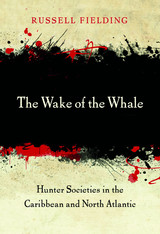
Despite declining stocks worldwide and increasing health risks, artisanal whaling remains a cultural practice tied to nature’s rhythms. The Wake of the Whale presents the art, history, and challenge of whaling in the Caribbean and North Atlantic, based on a decade of award-winning fieldwork.
Sightings of pilot whales in the frigid Nordic waters have drawn residents of the Faroe Islands to their boats and beaches for nearly a thousand years. Down in the tropics, around the islands of St. Vincent and the Grenadines, artisanal whaling is a younger trade, shaped by the legacies of slavery and colonialism but no less important to the local population. Each culture, Russell Fielding shows, has developed a distinct approach to whaling that preserves key traditions while adapting to threats of scarcity, the requirements of regulation, and a growing awareness of the humane treatment of animals.
Yet these strategies struggle to account for the risks of regularly eating meat contaminated with methylmercury and other environmental pollutants introduced from abroad. Fielding considers how these and other factors may change whaling cultures forever, perhaps even bringing an end to this way of life.
A rare mix of scientific and social insight, The Wake of the Whale raises compelling questions about the place of cultural traditions in the contemporary world and the sacrifices we must make for sustainability.
Publication of this book was supported, in part, by a grant from Furthermore: a program of the J. M. Kaplan Fund.
READERS
Browse our collection.
PUBLISHERS
See BiblioVault's publisher services.
STUDENT SERVICES
Files for college accessibility offices.
UChicago Accessibility Resources
home | accessibility | search | about | contact us
BiblioVault ® 2001 - 2024
The University of Chicago Press









